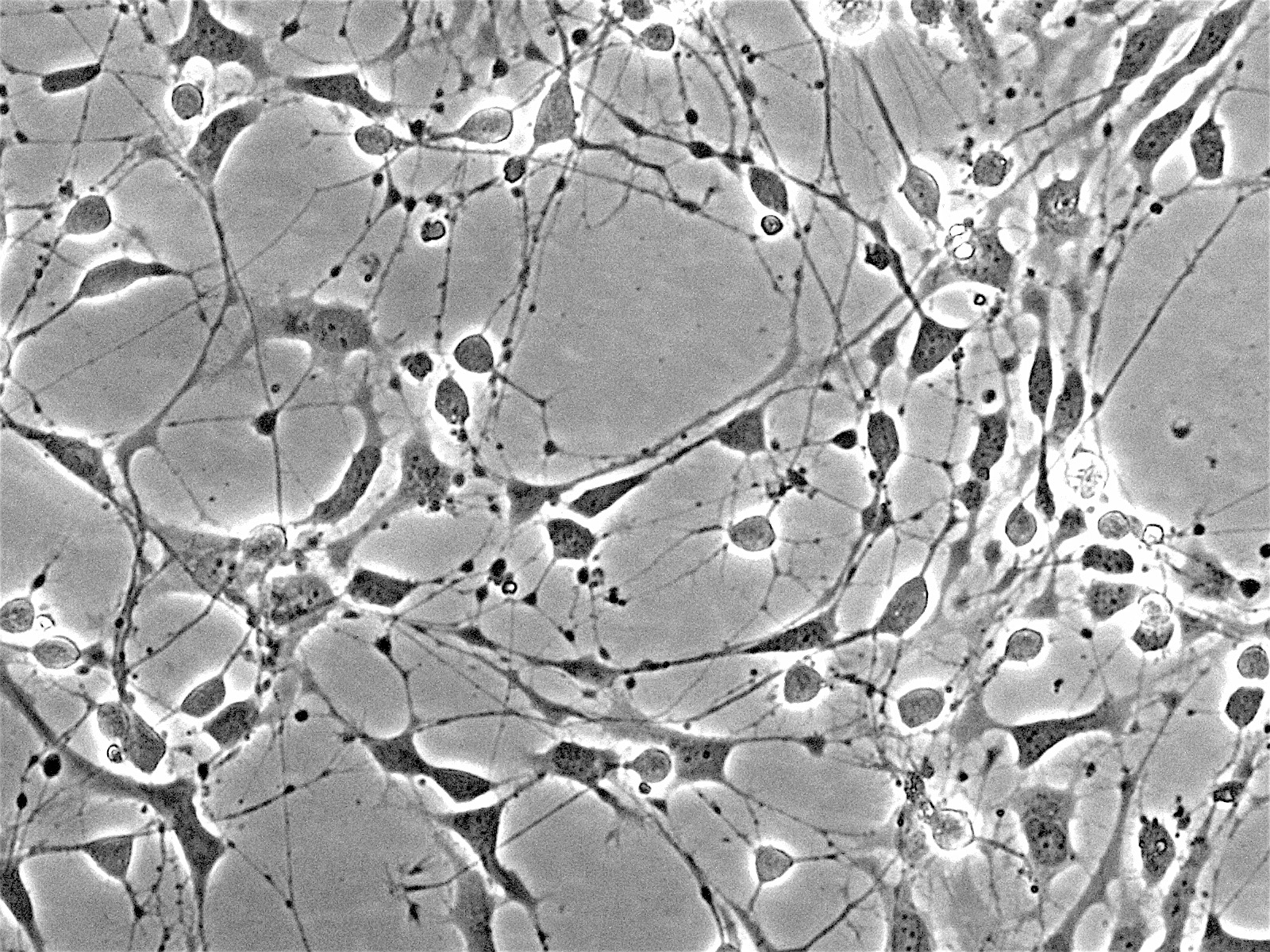McCarthy Lab
The McCarthy laboratory is focused on the molecular genetics of mood disorders. Research areas covered include genetic, molecular, and cellular mechanisms underlying bipolar disorder, major depression, and comorbid conditions like substance abuse and metabolic disease. The laboratory has three main research areas that are currently active.
-
Circadian mechanisms in cellular models of bipolar disorder
We are using cells from human subjects (fibroblasts and iPSC derived neurons) to identify disturbances in circadian rhythms in gene expression. By understanding how the clock oscillator and/or clock outputs are affected in bipolar disorder, we hope to identify mechanisms by which neurons either malfunction, or benefit from pharmacotherapeutic interventions like lithium. Pictured below are iPSC-derived neuronal progenitor cells at 20X magnification.

- Circadian mechanisms of antipsychotic induced metabolic disorders
Antipsychotic drugs have important uses as mood stabilizers and as augmentation of antidepressants. However, their long-term use is associated with weight gain and metabolic disorders like type 2 diabetes. Using pancreatic islet cells, we are measuring circadian rhythms, and examining how dopamine and antipsychotic drugs may disturb circadian rhythms to alter the temporal pattern of insulin release.
- Identifying biomarkers of treatment response in human subjects
Outcomes in mood disorders are commonly sub-optimal. At the VA San Diego Mood Disorder Clinic, we run a series of human clinical trials using pharmacogenetic testing, functional neuroimaging and peripheral biomarkers to efficiently select optimal drugs to manage mood symptoms and/or predict pharmacotherapeutic outcomes.
